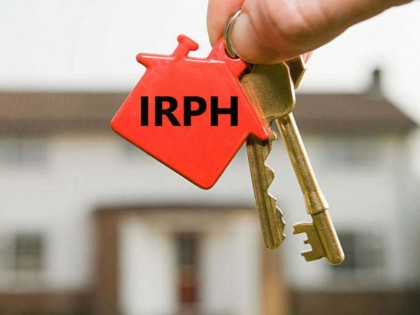Taking on a mortgage is a big deal, luckily we’re here to give you some expert advice on how to go about finding the right deal for you.
First and foremost, make sure that you understand the contract that you are about to sign, and that all the conditions are acceptable to you as well as any possible loopholes, possible awkward arrangements in the fine print, and what information the bank is obliged to provide to you upon request.
Basic conditions
When applying for a mortgage, you need to know all aspects that may affect the total expense you will end up paying for once the deal is finalised:
- The interest rate: this is a percentage applied to the total of the loan and will determine the value of the monthly payments you will be making to pay back the loan
In the case of variable interest rates, the percentage is a sum of a reference index – normally the 12 month euribor, and a fixed differential. With fixed rate mortgages, the rate will never change. This means a variable interest mortgage will have some risk attached to it, both for you and the bank as you could end up paying more or less than a fixed rate mortgage.
- Commission: these are amounts paid to the bank when requesting they carry out certain operations. The most common are opening the mortgage, early repayment, subrogation (changing mortgage) and novation – changing the conditions of the mortgage agreement.
- More ties to the bank: depending on how many services of the bank you use, you may be able to obtain better offers and rates on your mortgage. Generally speaking, the bank you take out the mortgage with will want to have your monthly salary deposited there, and you’ll have to take out both a property insurance policy and a life insurance policy, as well as another arrangement like a pension plan or crèdit card.
- Additional costs: these amount to roughly 15% of the value of the property. Before formalising the contract you will be required to cover the costs of arranging the mortgage.
In addition to the above points, the vast majority of mortgages only finance up to 80% of the estimated value of the property, requiring you to gather the remaining 20% prior to requesting the mortgage.
Problematic clauses
All the above conditions and variables are fairly easy to identify in the pre-signing information provider by your bank, however there can be other conditions which are only mentioned briefly, making for confusing reading and can even make you end up paying more than you thought with you noticing. These can include:
The Floor Clause
When taking out a variable rate mortgage, the “floor” sets the minimum interest that would apply in the event of a sharp fall of the reference index percentage. These types of clause were declared null and void in 2013, but many new mortgage contracts still feature it, so be on the lookout. It most likely won’t be referred to as a “floor”, but it will be present in some form.
The Replacement Index
In the event of the Euribor dissolving, a new, more expensive reference index could be applied. Make sure to spot and identify this possible replacement.
Zero Clause
This clause states that if the variable interest of a mortgage is negative, a rate of 0% will be applied.
You can find these clauses in the Interest Rate section of the Personalised Information Sheet of the mortgage loan offered by the bank.
Documents you should request
Personalised Information Card: this is a recollection of all the conditions offered to a bank client based on the information provided to them. Breakdown of Arrangement Costs: fees, taxes and expenses relating to opening your mortgage with the bank. Breakdown of Monthly Payments: details the monthly amounts due to the bank
“Binding” Offer: this a pre-mortgage agreement that holds the bank to maintain its offer to you for a period usually no less than two weeks. This gives you time to compare mortgages from other banks.
Having all these points clear will help you make an informed decision about what mortgage deal is best for you.
Should you require any assistance or legal counsel concerning properties, purchases and sales on the islands of Mallorca, Menorca and Ibiza, please contact us at your convenience at info@mallorcasolicitors.co.uk or by phone on the numbers listed on our contact page.









































































































